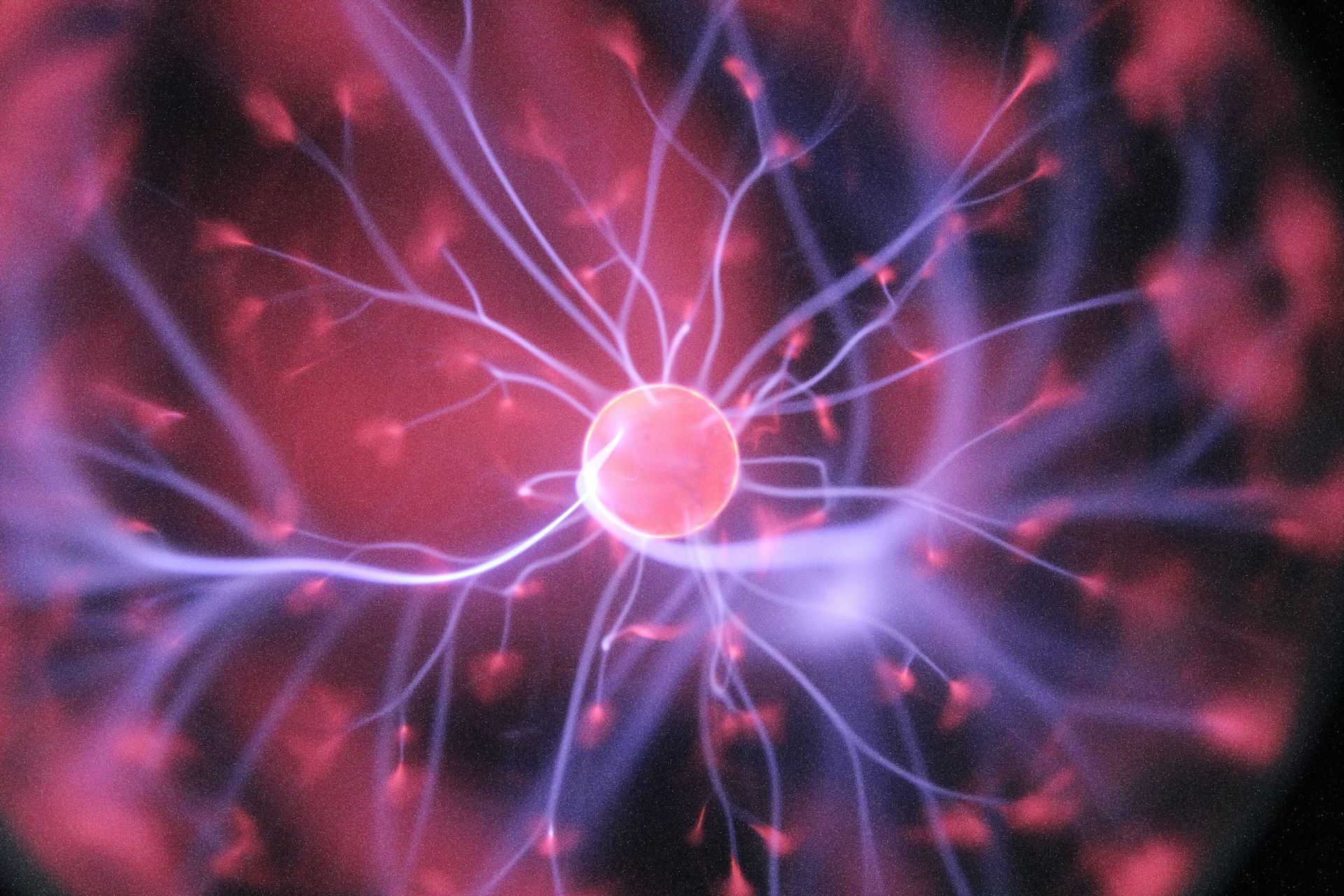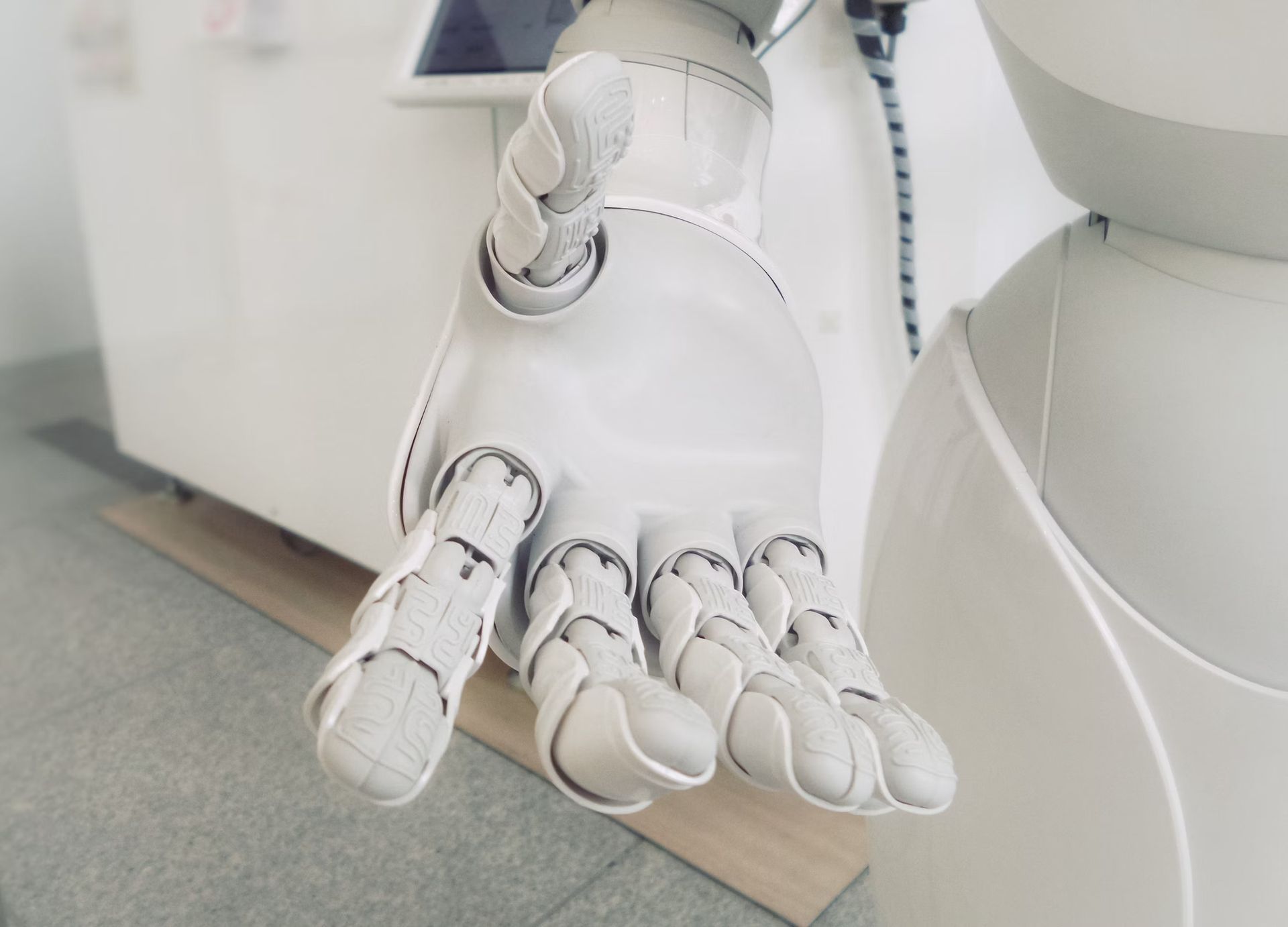Artificial intelligence vs cognitive science – two fields of study that are often seen as distinct, yet they share a common goal: to understand human intelligence and behavior. While artificial intelligence is focused on creating intelligent machines that can perform human-like tasks, cognitive science is devoted to understanding the underlying cognitive processes and mechanisms that give rise to human intelligence.
Together, these fields have led to groundbreaking advancements in the development of intelligent machines that can learn, reason, and interact with humans in a more natural and intuitive way. By incorporating insights from cognitive science, AI is becoming more advanced and capable, with the potential to transform many aspects of our lives.
What is artificial intelligence (AI)?
Artificial intelligence, or AI, is a field of computer science and engineering that focuses on creating machines and systems that can perform tasks that typically require human intelligence. These tasks can range from simple ones like recognizing speech or images, to complex ones like playing chess, driving a car, or even diagnosing medical conditions.
AI systems typically rely on algorithms, statistical models, and large amounts of data to learn and improve their performance over time. Some of the most common techniques used in AI include machine learning, deep learning, natural language processing, and computer vision.
AI has already had a profound impact on many areas of our lives, from personal assistants like Siri and Alexa, to self-driving cars and virtual assistants in customer service. As AI technology continues to advance, it is expected to transform even more industries and enable new forms of automation, personalization, and decision-making.

What is cognitive science?
Cognitive science is a multidisciplinary field that explores the nature of human thought, perception, and behavior. It combines insights from psychology, linguistics, neuroscience, philosophy, computer science, and anthropology to understand how the mind works and how it interacts with the world.
At its core, cognitive science seeks to answer questions like: How do we perceive and interpret sensory information? How do we learn and remember information? How do we use language to communicate and think? How do we reason and make decisions? How do we develop emotions and social relationships?
To answer these questions, cognitive science researchers use a variety of methods, including experiments, brain imaging, computational modeling, and observational studies. They seek to understand the underlying cognitive processes and mechanisms that give rise to our thoughts, emotions, and actions, and how they are shaped by our environment, culture, and individual differences.
Cognitive science has many practical applications, from improving education and healthcare, to developing more effective human-computer interfaces and artificial intelligence systems.
Key differences between AI and cognitive science
AI and cognitive science are two related but distinct fields of study that both deal with aspects of human intelligence and behavior.
AI is primarily concerned with developing machines and systems that can perform tasks that typically require human intelligence, such as learning, perception, reasoning, and decision-making. AI relies heavily on computer science, mathematics, and engineering to create intelligent algorithms and systems.
Cognitive science, on the other hand, is a multidisciplinary field that seeks to understand the nature of human thought, perception, and behavior. It draws on insights from psychology, linguistics, neuroscience, philosophy, computer science, and anthropology to study how the mind works and how it interacts with the world.
While there is some overlap between AI and cognitive science, they approach the study of intelligence and behavior from different perspectives. AI is focused on creating intelligent machines, while cognitive science is focused on understanding the underlying cognitive processes and mechanisms that give rise to intelligent behavior.

Importance of understanding the differences between AI and cognitive science
It is important to understand the differences between AI and cognitive science because they have different goals, methods, and applications.
AI is primarily concerned with building intelligent machines and systems that can perform specific tasks. It has already had a significant impact on many industries, including healthcare, finance, and transportation. Understanding AI is important for anyone who wants to work with or develop intelligent systems, as well as for policymakers and the general public who need to grapple with the social and ethical implications of AI.
Cognitive science, on the other hand, is concerned with understanding the fundamental nature of human cognition and behavior. It has broad implications for fields such as education, psychology, and neuroscience, and can inform our understanding of many aspects of human experience, from language and culture to creativity and emotion.
By understanding the differences between AI and cognitive science, we can appreciate the complementary nature of these two fields and how they can work together to advance our understanding of intelligence and behavior, both in machines and in humans.
Artificial intelligence
Artificial intelligence refers to the ability of machines and systems to perform tasks that typically require human intelligence, such as learning, reasoning, perception, and decision-making. AI has a long and fascinating history, dating back to the early days of computing and the development of early AI systems.
AI and its history
The field of AI was officially launched in the summer of 1956, when a group of researchers, including John mccarthy and Marvin Minsky, gathered at Dartmouth College to discuss the possibility of creating machines that could simulate human intelligence. This conference is now regarded as the birthplace of AI, and it kicked off several decades of research and development in the field.
Over the years, AI has gone through several cycles of hype and disappointment, but it has continued to advance at a rapid pace. Some of the key breakthroughs in AI include the development of expert systems in the 1970s, the rise of machine learning in the 1980s and 1990s, and the recent explosion of deep learning and neural networks.
Today, AI is being used in a wide range of applications, from personal assistants like Siri and Alexa, to self-driving cars and intelligent robots. The field is also transforming industries such as healthcare, finance, and transportation, and is expected to continue to have a significant impact on many aspects of our lives in the coming years.

How does AI work?
AI works by using algorithms, statistical models, and large amounts of data to learn and improve its performance over time. Some of the key techniques used in AI include:
- Machine learning: This involves training algorithms to make predictions or decisions based on patterns in data. Machine learning can be supervised (where the algorithm is given labeled examples to learn from) or unsupervised (where the algorithm learns to find patterns on its own).
- Deep learning: This involves using neural networks to learn complex representations of data, and has been especially successful in areas such as image and speech recognition.
- Natural language processing: This involves teaching computers to understand and generate human language, and has led to the development of chatbots, virtual assistants, and other language-based applications.
- Computer vision: This involves teaching computers to interpret visual information, and has applications in areas such as autonomous vehicles, security systems, and medical imaging.
AI systems can be trained using a variety of data sources, including structured data (such as databases) and unstructured data (such as text, images, and video). The performance of AI systems is typically evaluated using metrics such as accuracy, precision, and recall, and their performance can be improved through techniques such as transfer learning, data augmentation, and hyperparameter tuning.
Examples of AI applications
AI is being used in a wide range of applications, including:
- Personal assistants (e.g. Siri, Alexa, Google Assistant)
- Recommender systems (e.g. Netflix, Amazon)
- Self-driving cars (e.g. Waymo, Tesla)
- Medical diagnosis (e.g. IBM Watson Health)
- Fraud detection (e.g. Mastercard)
- Predictive maintenance (e.g. GE Aviation)
- Image and speech recognition (e.g. Google Photos, Alexa)
Advantages and disadvantages of AI
Artificial intelligence has many potential advantages and disadvantages, depending on how it is developed and used. Some of the key advantages of AI include:
- Increased efficiency and productivity: AI can automate many tasks, reducing the need for human labor and increasing the speed and accuracy of processes.
- Improved accuracy and precision: AI can analyze large amounts of data and identify patterns that humans might miss, leading to more accurate predictions and decisions.
- Personalization and customization: AI can analyze individual preferences and behavior to personalize products, services, and experiences.
- 24/7 availability: AI systems can operate around the clock, providing continuous service and support.
- Exploration and discovery: AI can analyze complex data sets and discover new patterns and insights that humans might not have thought of.
However, AI also has several potential disadvantages, including:
- Job displacement: AI could replace human workers in many industries, leading to unemployment and economic disruption.
- Bias and discrimination: AI systems can be biased if they are trained on biased data sets or designed with biased assumptions, leading to unfair or discriminatory outcomes.
- Lack of transparency: Some AI systems are difficult to understand or interpret, making it hard to identify errors or biases.
- Security and privacy risks: AI systems can be vulnerable to cyberattacks or data breaches, putting sensitive information at risk.
- Ethical concerns: The use of AI in certain applications, such as autonomous weapons or surveillance systems, raises ethical questions about the role of machines in decision-making.

Limitations of AI compared to cognitive science
While AI has made great strides in recent years, it still has several limitations compared to cognitive science. Some of the key limitations include:
- Narrow focus: AI systems are typically designed to perform specific tasks, and are often not able to generalize to new situations or contexts.
- Lack of creativity: AI systems can generate new ideas or solutions, but they often lack the creativity and originality of human thinking.
- Limited understanding of context: AI systems can struggle to understand the broader context of a problem or situation, leading to errors or misunderstandings.
- Limited social and emotional intelligence: AI systems can recognize and respond to human emotions to some extent, but they often lack the depth of understanding and empathy that human beings possess.
Cognitive science, on the other hand, has the advantage of studying human intelligence and behavior directly, and can provide insights into the underlying cognitive processes and mechanisms that give rise to intelligent behavior. However, cognitive science is limited by the complexity and variability of human cognition, and often lacks the precision and predictability of AI systems. By combining insights from AI and cognitive science, researchers can create more powerful and effective intelligent systems that can perform tasks in a more human-like way.
Cognitive science
Cognitive ccience is a multidisciplinary field that seeks to understand the nature of human thought, perception, and behavior. It combines insights from psychology, linguistics, neuroscience, philosophy, computer science, and anthropology to study how the mind works and how it interacts with the world.
Cognitive science and its history
The roots of cognitive science can be traced back to ancient philosophers like Plato and Aristotle, who were interested in the nature of human thought and knowledge. However, the modern field of cognitive science emerged in the 1950s and 1960s, when researchers began to apply insights from computer science and information theory to the study of human cognition.
Some of the key figures in the early days of cognitive science included George Miller, Noam Chomsky, and Herbert Simon, who were interested in topics like language, memory, and problem-solving. Over the years, cognitive science has grown to encompass a wide range of topics and disciplines, including perception, attention, decision-making, emotion, and consciousness.
Artificial intelligence is both Yin and Yang
How does cognitive science work?
Cognitive science works by using a variety of methods and techniques to study human cognition and behavior. Some of the key approaches include:
- Experimental psychology: This involves conducting controlled experiments to study specific aspects of human cognition and behavior, such as memory, attention, or decision-making.
- Neuropsychology: This involves studying how brain damage or dysfunction can affect cognitive processes and behavior, providing insights into the neural basis of cognition.
- Computational modeling: This involves developing computer models or simulations of cognitive processes, which can help researchers understand how the mind works and make predictions about behavior.
- Cognitive neuroscience: This involves using brain imaging techniques, such as fmrı or EEG, to study the neural basis of cognition and behavior.
By using these approaches, cognitive science researchers seek to understand the underlying cognitive processes and mechanisms that give rise to intelligent behavior, and how these processes are shaped by factors such as genetics, experience, culture, and development.
Examples of cognitive science applications
Cognitive science has many practical applications, including:
- Education: Cognitive science research has led to the development of new instructional techniques and technologies that can improve learning outcomes.
- Healthcare: Cognitive science research has led to new treatments for conditions such as depression, anxiety, and PTSD, as well as new methods for cognitive rehabilitation after brain injury or stroke.
- Human-computer interaction: Cognitive science research has led to the development of more intuitive and effective human-computer interfaces, such as voice assistants, virtual reality, and gesture recognition.
- Artificial intelligence: Cognitive science research has informed the development of intelligent algorithms and systems, by providing insights into human cognition and behavior.
- Marketing and advertising: Cognitive science research has led to new insights into consumer behavior and decision-making, informing marketing and advertising strategies.
Advantages and disadvantages of cognitive science
Cognitive science has many potential advantages and disadvantages, depending on how it is developed and used. Some of the key advantages of cognitive science include:
- A holistic understanding of human behavior: Cognitive science seeks to understand human behavior from a broad, interdisciplinary perspective, taking into account factors such as culture, experience, and development.
- Rich insights into the complexity of human cognition: Cognitive science research has provided deep insights into the nature of human cognition, including perception, attention, memory, language, and reasoning.
- Potential for improving human life: Cognitive science research has led to the development of new treatments for mental and neurological disorders, as well as new educational techniques and technologies.

However, cognitive science also has several potential disadvantages, including:
- The complexity of human cognition: The study of human cognition is inherently complex, and it can be difficult to draw definitive conclusions or generalize findings across individuals or contexts.
- Limitations of research methods: Many of the research methods used in cognitive science, such as self-report measures or laboratory experiments, have limitations and may not accurately reflect real-world behavior.
- Ethical concerns: Some cognitive science research raises ethical concerns, such as research involving deception or the use of vulnerable populations.
Limitations of cognitive science compared to AI
While cognitive science provides deep insights into human cognition and behavior, it has several limitations compared to AI. Some of the key limitations include:
- Limited scalability: Cognitive science research is often conducted on a small scale, with a limited number of participants, which can make it difficult to generalize findings to larger populations.
- Limited precision: Cognitive science research is often focused on understanding the broad patterns and mechanisms of human cognition, rather than on developing precise, quantifiable models or algorithms.
- Limited automation: Cognitive science research often requires significant human expertise and input, which can limit its scalability and applicability in certain contexts.
- Limited generalization: Cognitive science research is often focused on understanding the unique aspects of human cognition, which can make it difficult to generalize findings to non-human systems or environments.
AI, on the other hand, has the advantage of being able to process vast amounts of data quickly and efficiently, and to learn and improve over time. By combining insights from cognitive science and AI, researchers can develop more powerful and effective intelligent systems that can perform tasks in a more human-like way while also scaling to address real-world problems.
What is cognitive science in artificial intelligence?
In the field of artificial intelligence, cognitive science plays a crucial role in developing intelligent machines that can interact with the world in a way that mimics human-like behavior. Cognitive science provides a theoretical framework for understanding how the mind works and how to design algorithms and systems that can replicate intelligent human behavior.
Cognitive science research helps AI scientists and engineers to develop systems that can learn and reason like humans, recognize speech and images, and process natural language. By studying how the brain processes information, cognitive science informs the development of intelligent algorithms that can make decisions, solve problems, and interact with humans in a more natural way.
Cognitive science provides the foundation for the development of truly intelligent machines that can understand and interact with the world like humans do. By incorporating insights from cognitive science, AI is becoming more advanced and capable, and it is poised to transform many aspects of our lives in the years to come.
Artificial intelligence vs cognitive science
Artificial intelligence and cognitive science are two related but distinct fields that seek to understand and replicate intelligent behavior. While AI focuses on creating machines that can perform tasks that typically require human intelligence, cognitive science seeks to understand how human cognition works and how it can be applied to solve real-world problems.
Cyberpsychology: The psychological underpinnings of cybersecurity risks
Approaches
AI and cognitive science take different approaches to understanding and replicating intelligent behavior. AI is often based on a bottom-up, data-driven approach, in which algorithms are trained on large datasets to learn patterns and make predictions. In contrast, cognitive science is often based on a top-down, theory-driven approach, in which researchers develop hypotheses and test them through experiments and observations.
Methods
AI and cognitive science also use different methods to study intelligent behavior. AI often relies on statistical methods and machine learning algorithms to identify patterns in data and make predictions. cognitive science, on the other hand, uses a wide range of methods, including experimental psychology, neuropsychology, and computational modeling, to study various aspects of human cognition and behavior.

Goals
AI and cognitive science also have different goals. The primary goal of AI is to develop machines and systems that can perform tasks that typically require human intelligence, such as understanding language, recognizing images, and making decisions. In contrast, the primary goal of cognitive science is to understand how human cognition works and how it can be applied to solve real-world problems, such as improving education, healthcare, and human-computer interaction.
| Artificial intelligence | Cognitive science | |
| Focus | Creating intelligent machines and systems | Understanding the nature of human thought, perception, and behavior |
| Disciplines | Computer Science, Mathematics, Engineering | Psychology, Linguistics, Neuroscience, Philosophy, Computer Science, Anthropology |
| Applications | Personal assistants, self-driving cars, virtual assistants in customer service, etc. | Education, Healthcare, Human-Computer Interaction, Artificial Intelligence, Marketing, Law, Sports |
| Approach | Develops intelligent algorithms and systems | Studies underlying cognitive processes and mechanisms |
| Methods | Machine learning, deep learning, natural language processing, computer vision, etc. | Experiments, brain imaging, computational modeling, observational studies, etc. |
Differences in approaches, methods, and goals
Overall, the key differences between AI and cognitive science lie in their approaches, methods, and goals. AI takes a bottom-up, data-driven approach to understanding and replicating intelligent behavior, using statistical methods and machine learning algorithms to identify patterns and make predictions. cognitive science takes a top-down, theory-driven approach, using a wide range of methods to study various aspects of human cognition and behavior.
The goals of AI and cognitive science also differ, with AI focusing on developing machines and systems that can perform tasks that typically require human intelligence, while cognitive science seeks to understand how human cognition works and how it can be applied to solve real-world problems.
By combining insights from AI and cognitive science, researchers can create more powerful and effective intelligent systems that can perform tasks in a more human-like way, while also advancing our understanding of human cognition and behavior.
Areas of overlap between AI and cognitive science
While artificial intelligence and cognitive science have different goals and approaches, there are several areas of overlap where the two fields can be used together to create more powerful and effective intelligent systems.
Examples of real-world scenarios where AI and cognitive science are used together
Here are some examples of real-world scenarios where AI and cognitive science are used together:
Healthcare
In healthcare, AI and cognitive science can be used together to develop more effective treatments for mental and neurological disorders. cognitive science research has provided insights into the underlying cognitive processes and mechanisms that give rise to these disorders, while AI can be used to develop intelligent algorithms and systems that can analyze patient data and identify personalized treatment plans.
Education
In education, AI and cognitive science can be used together to develop new instructional techniques and technologies that can improve learning outcomes. Cognitive science research has provided insights into how humans learn and process information, while AI can be used to develop intelligent tutoring systems that can personalize instruction and provide immediate feedback to students.

Human-robot interaction
In human-robot interaction, AI and cognitive science can be used together to develop more intuitive and effective communication between humans and machines. Cognitive science research has provided insights into how humans perceive and interpret social cues and emotions, while AI can be used to develop robots and virtual assistants that can recognize and respond to these cues in a more human-like way.
Natural language processing
In natural language processing (NLP), AI and cognitive science can be used together to develop more accurate and effective language models. Cognitive science research has provided insights into how humans process language, while AI can be used to develop algorithms and systems that can recognize and generate human language in a more natural and intuitive way.
Autonomous vehicles
In autonomous vehicles, AI and cognitive science can be used together to develop more reliable and safe self-driving systems. Cognitive science research has provided insights into how humans perceive and respond to their environment, while AI can be used to develop intelligent algorithms and systems that can interpret and respond to real-time sensor data.
The combination of AI and cognitive science has the potential to create more powerful and effective intelligent systems that can perform tasks in a more human-like way, while also advancing our understanding of human cognition and behavior.
Creating an artificial intelligence 101
Final words
Artificial intelligence vs cognitive science – two distinct yet intertwined fields that are shaping the future of technology and human-machine interaction. While AI focuses on developing machines and systems that can replicate human-like intelligence, cognitive science seeks to understand the nature of human thought, perception, and behavior.
Together, these fields have led to remarkable advancements in the development of intelligent machines that can learn, reason, and interact with humans in a more natural and intuitive way. By incorporating insights from cognitive science, AI is becoming more advanced and capable, with the potential to transform many aspects of our lives.
As we continue to push the boundaries of what is possible with AI and cognitive science, the potential applications and benefits are almost limitless. From personalized healthcare and education to smarter cities and sustainable energy, the future is bright with possibility. By combining these two fields, we are unlocking the secrets of human intelligence and creating a world where machines and humans can collaborate and innovate together.




